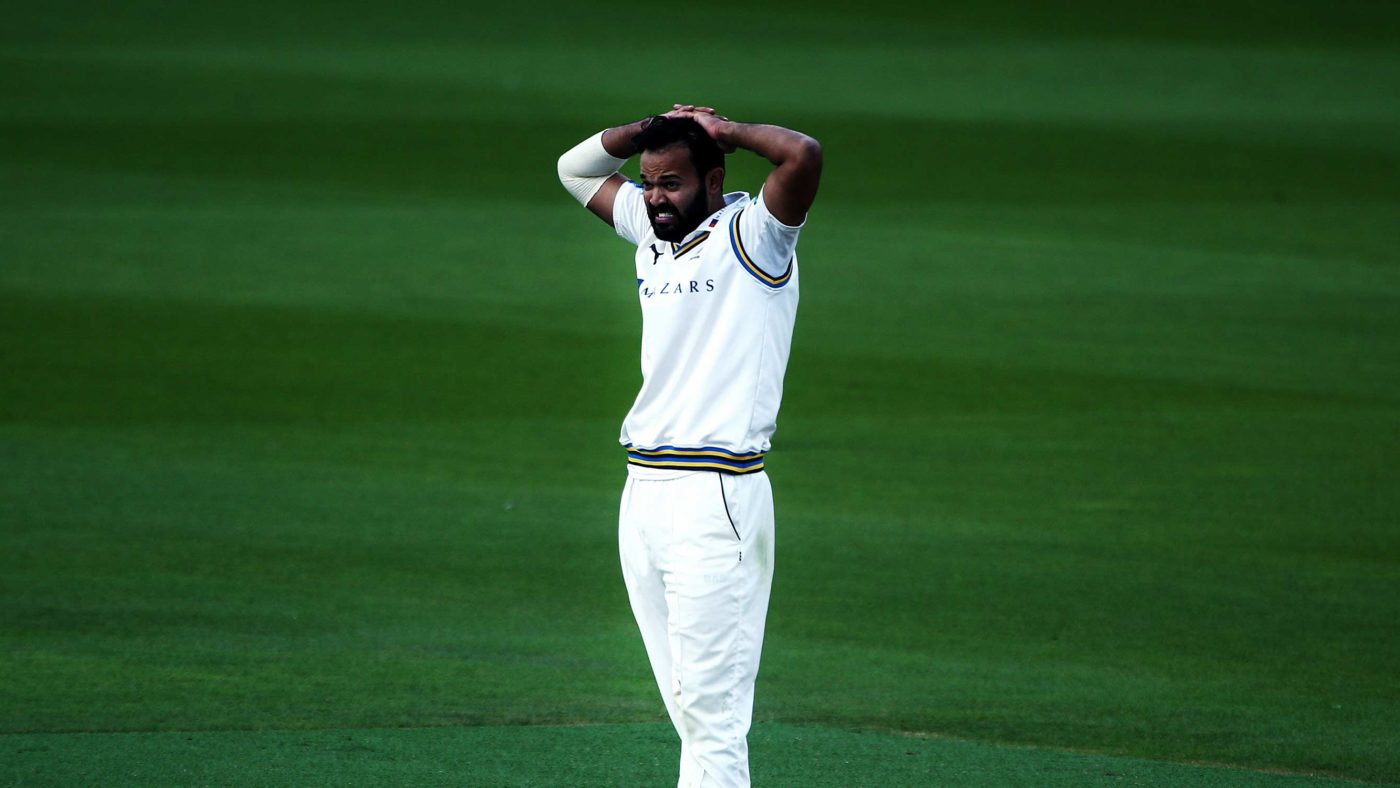English cricketing history is littered with collapses, but few can have been as spectacular as that suffered by Yorkshire County Cricket Club in the last week.
The resignation of Chairman Roger Hutton this morning came just one week after Yorkshire said it was ‘pleased’ to announce its response to an independent panel report into the racist harassment suffered by former player Azeem Rafiq. It turned out the club’s chosen course of action was inaction, with no sanctions against any staff or players.
What catalysed the crisis was the revelation that the unpublished report criticised Rafiq’s distress at being called a ‘Paki’ as something that he ought to have understood as ‘banter between friends’.
It was Health Secretary Sajid Javid – in a personal intervention motivated by the scars of racist taunts he had personally faced, who put the central points with clarity: ‘Paki is not banter. Heads should roll at Yorkshire CCC. If the ECB does not take action, it is not fit for purpose’.
That was a hat-trick ball – almost everybody could agree on Javid’s three points. It is depressing to still need to secure such basic foundations in 2021, though the pace and breadth of the consensus showed what may be changing too.
Javid’s position was vocally supported by Culture Secretary Nadine Dorries, while the hearings announced by Culture Secretary Chair Julian Knight and cross-party pressure from Yorkshire Mayors and MPs, including Dan Jarvis and Tracy Brabin, made it clear that the club’s response would not hold. Without the ethnic minority presence at the top table, it is not clear that this political consensus would have formed so quickly a decade ago. The increased number of British Asian and black voices in the media with memories of the ‘banter’ arguments to defend racism made a difference too.
Strikingly, Yorkshire found itself sponsor-less within days. Anchor Butter, Tetley’s Beer, Yorkshire Tea, Harrogate Spring Water, kit sponsor Nike and the headline sponsor of the Headingley ground, Emerald Publishing, expressed dismay at the mishandling of racism, withdrawing their association until there was real change.
That many of the sponsors embody the ethos and spirit of Middle Yorkshire made their interventions more powerful. Being on the wrong side of a racism argument with butter, tea and beer is clearly no picnic. Commercial sponsors would not have moved with such pace had it not been for the new conversations about race and inclusion sparked by the anti-racism protests of last summer.
The sponsor reaction in turn pushed the English and Wales Cricket Board to speed up their intervention, after some ambivalence in recent months about when to get involved. Yorkshire was last night stripped of its right to host international cricket. This may prove symbolic – Yorkshire has these winter months to restore its standing and status in time for next season – but it was a final nudge to ensure regime change this morning.
So what happens next?
Yorkshire will need new leadership. The outgoing chair has been clear about the scale of cultural and institutional change needed. So it is curious that Colin Graves, chair of Yorkshire for much of the period, is being proposed as the new broom. Graves even vocally challenged the ICC’s first ever racism charges as ‘blown our of all proportion’. In this context, that should disqualify him from standing. If the new leadership turns out to be the old leadership, there will be yet more controversy before the difficult process of building trust can even begin.
The ECB should ensure that new leadership at Yorkshire should adopt the principles of truth and reconciliation, and put them into practice. Trusted voice from both outside and inside the sport will have to lead this, if it is to break with the legally-driven culture of containment which has collapsed this week. One essential foundation would be to talk to all of the sprinkling of ethnic minority cricketers who have played for Yorkshire, from youth teams to the first-class team, along with everybody else in the dressing room who has something to contribute. Nobody can change those experiences now, but listening is essential if the county is to learn and act.
This latest episode is another chapter in a longer history of mutual distrust and distance between the Asian community and Yorkshire cricket. English cricket had – but missed – the biggest opportunity for integration in English sport of the post-war decades. It was the sport of the Commonwealth migrants to Britain, but the great cricketing counties like Yorkshire somehow found that shared passion to be a source of mutual distrust over opportunity and discrimination. The attitudes of county legends like Brian Close, who once opined that ‘bloody Pakis, they just don’t want to know’, cast a long shadow. The hope in this century was that such attitudes were confined to the past, once Yorkshire fielded its first British-born Asian players in 2004. Rafiq’s experiences show that perspectives on how much has changed remain deeply contested.
Cricket’s challenge on race and inclusion is local and national. The quality of engagement, or its absence, from great cricketing counties like Yorkshire, Lancashire and Surrey, who serve areas of high ethnic diversity, is crucial. Yet the professional game has gone backwards with black cricketers since the 1990s, partly reflecting the retreat of the game in state schools. Its progress with Asian players has been glacial, given the scale of interest in the sport.
As Monty Panesar has pointed out this week, cricket has no national anti-racism campaign, equivalent to the Kick It Out campaign. That could underpin a shared understanding of why racism isn’t ‘banter’. It is now time for cricket to hit racism for six, but that will only be the first step to building a culture of inclusion.
Click here to subscribe to our daily briefing – the best pieces from CapX and across the web.
CapX depends on the generosity of its readers. If you value what we do, please consider making a donation.


